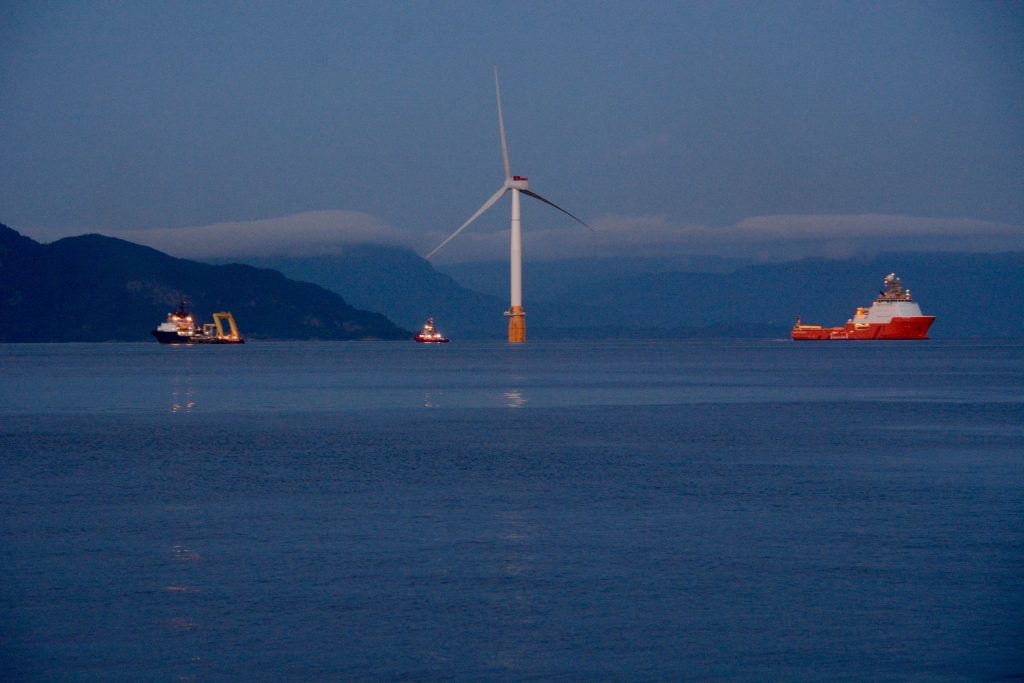 © Equinor
© Equinor The UK offshore wind market will “likely remain” in shallower waters without significant floating wind investment, according to a new report.
A study by Strathclyde University claims the sector needs UK and Scottish Government support if it wants to maintain “vital” renewable energy trade links with Europe.
It adds that investment is desperately needed in the floating offshore wind sector “to ensure the UK remains a global leader” in the deployment of the technology.
The report also claims a lack of floating wind could “limit” the sector’s scope for growth.
The floating wind market has grown from “almost nothing” in 2008 to 57 megawatts (MW) in 2018 globally.
By 2030 the report estimates that internationally this could grow as high as 4.3 gigawatts (GW) – the equivalent of around half the UK’s current offshore wind capacity today.
Scotland is estimated to have a significant amount of global floating offshore wind potential around its north-east coast – particularly around Shetland.
In 2017, Equinor’s Hywind floating wind farm of Scotland’s north-east coast became the first project in the world.
Matthew Hannon, director of research at the Hunter Centre for Entrepreneurship at the University of Strathclyde, said: “There is roughly ten times the capacity of offshore wind deployed in UK waters today compared to a decade ago.
“However, in order for the UK to meet its highly ambitious 2050 net-zero carbon target, it is essential its offshore wind sector continues to expand over the next 30 years.
“The issue is that our current inability to generate wind power cost-effectively from deep waters presents a potential bottleneck to the future expansion of UK offshore wind, especially the deep waters surrounding Scotland.”
Mr Hannon added: “Our report highlights how UK and Scottish government must act now to safeguard their market lead. Actions include reinstating government funds to de-risk floating wind projects and retaining strong trade links with Europe post-Brexit.”
The report advocates a guaranteed government subsidy for floating wind technology, alongside attempts to secure EU demonstration funding post-Brexit.
It also suggests that the UK grow its domestic floating wind supply chain by helping firms already operating in the wind sector, or other sectors with synergistic capabilities, to transition into it.
Claire Mack, chief executive of Scottish Renewables added: “This new research correctly identifies that there is a very significant opportunity for floating offshore wind technology development here in Scotland, and indeed in the rest of the UK.
“Scotland’s deeper waters mean floating wind represents a natural evolution of this country’s current success in fixed offshore projects.”
